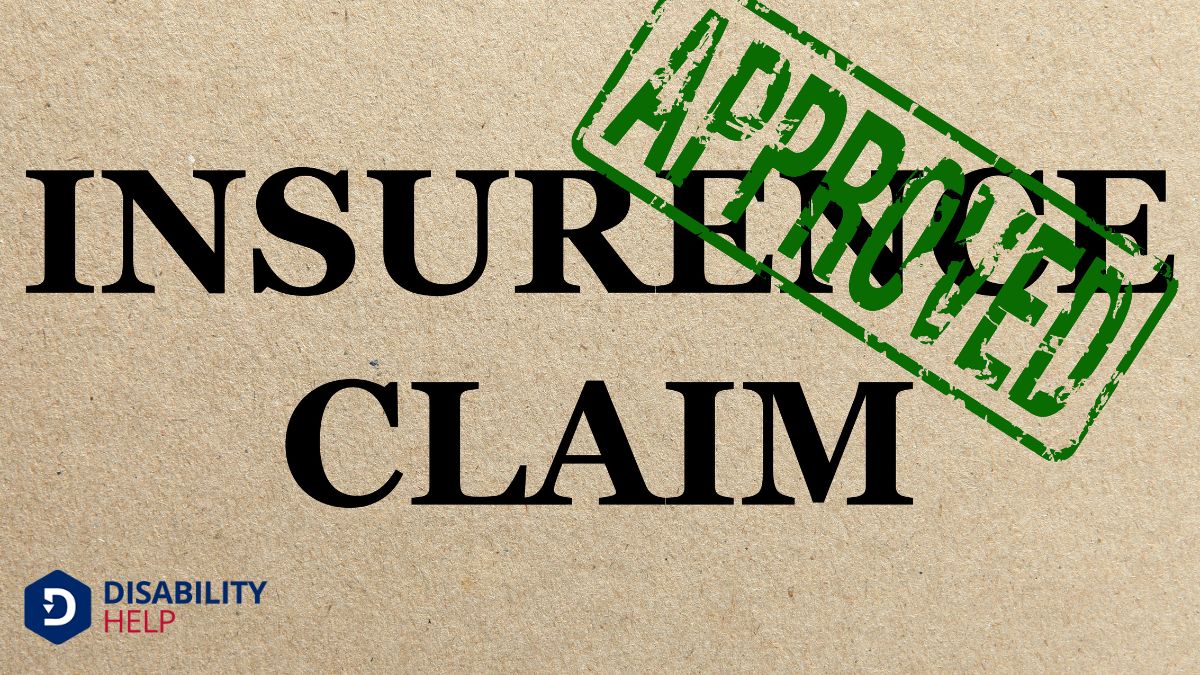Let's explore what medical conditions might qualify us for disability insuranceA form of insurance that provides income to individuals who are unable to work due to a disability. benefits. We often think of severe physical impairments like musculoskeletal disorders or cardiovascular issues, but mental health disorders such as depressionA mental health condition marked by persistent feelings of sadness and loss of interest. can also play a significant role. Chronic illnesses like diabetesA chronic condition where the body cannot produce or properly use insulin, leading to high blood sug... may qualify too, particularly if they majorly affect our work capabilities. However, thorough medical documentation is essential. Are we aware of the specifics that could make or break a claim?
Key Takeaways
- Severe musculoskeletal disorders, like arthritisInflammation of the joints, leading to pain, stiffness, and limited movement. or back injuries, can qualify if they significantly limit mobility.
- Chronic respiratory diseases such as COPD or severe asthma may qualify if they impair breathing and affect work.
- Cardiovascular issues, including heart disease, qualify if they limit physical exertion and work capacity.
- Mental health disorders, such as depression or bipolar disorderA mental health condition characterized by extreme mood swings, including manic and depressive episo..., qualify if they substantially impact daily activities.
- Chronic illnesses like diabetes or multiple sclerosis are recognized if they significantly limit major life activities.
Understanding Disability Insurance Eligibility

While maneuvering through the complexities of disability insurance can seem overwhelming, understanding eligibility criteria is vital for guaranteeing you receive the benefits you deserve. We need to grasp the fundamental requirements that determine our eligibility.
First, we must establish that our condition considerably limits our ability to perform basic work activities. It’s essential we've thorough medical documentation to support our claim. The insurance provider typically requires detailed medical records, doctor's statements, and sometimes even additional assessments.
Furthermore, we should confirm that our condition is expected to last at least a year or result in death. This longevity requirement is critical.
Physical Impairments That May Qualify
Having established the eligibility criteria for disability insurance, let’s explore specific physical impairments that may qualify for benefits.
Conditions such as musculoskeletal disorders, including severe arthritis and back injuries, can considerably hinder mobility and everyday functioning.
Cardiovascular issues like heart disease may also qualify, especially when they limit physical exertion.
Chronic respiratory diseases, such as COPD or severe asthma, can impair breathing and daily activity, leading to eligibility.
Neurological disorders, including epilepsyA neurological disorder marked by recurring seizures. or multiple sclerosis, often impact motor skills and coordination, making them potential qualifiers.
Finally, sensory impairments like substantial vision or hearing lossPartial or total inability to hear sounds in one or both ears. can affect our ability to work effectively.
It’s essential to have thorough medical documentation to support these claims, ensuring the insurance provider understands the extent of our limitations.
Mental Health Disorders and Disability Benefits
As we explore mental health disorders and their implications for disability benefitsFinancial assistance provided to individuals who are unable to work due to a disability, such as Soc..., it's vital to recognize the profound impact these conditions can have on our ability to work and function daily.
Mental health disorders like depression, anxiety, bipolar disorder, and schizophreniaA severe mental health disorder characterized by delusions, hallucinations, and disorganized thinkin... can be as debilitating as any physical ailment. When we're struggling with these conditions, maintaining employment or performing routine tasks can become overwhelming.
Qualifying for disability benefits requires documentation from medical professionals, illustrating how symptoms inhibit daily activities and job performance.
We must understand that insurers look for substantial evidence, such as treatment history and consistent medical evaluations, to approve claims.
It's important to seek support and gather necessary documentation to build a strong case for benefits, helping us focus on recovery and managing our mental health.
Chronic Illnesses Recognized by Insurers
Let's explore how insurers recognize chronic illnesses for disability benefits.
We'll look at common conditions they cover, the criteria they use for recognition, and the documentation needed for approval.
Understanding these factors can help us navigate the process more effectively.
Common Chronic Illnesses
While guiding through the world of disability insurance, it’s crucial to understand which chronic illnesses insurers commonly recognize.
By knowing these conditions, we can better navigate the process and guarantee we're adequately covered. Chronic illnesses often require long-term management and can greatly impact daily life and work capacity.
Here are some common chronic illnesses that are generally recognized by insurers:
- Diabetes: This condition affects the body's ability to regulate blood sugar.
- Rheumatoid Arthritis: A chronic inflammatory disorder affecting joints.
- Multiple Sclerosis (MS)A disease where the immune system attacks the protective covering of nerves, causing communication p...: A disease that impacts the brain and spinal cord.
- Chronic Obstructive Pulmonary Disease (COPD): A group of lung diseases that block airflow.
Understanding these conditions helps us as we consider how disability insurance can provide crucial support.
Insurer Recognition Criteria
Recognizing common chronic illnesses isn't enough; we also need to understand how insurers determine which conditions qualify for disability benefits. Insurance companies rely on specific criteria to evaluate chronic illnesses. They assess the severity, duration, and impact on our ability to work.
Insurers typically have a list of recognized conditions, but it's not exhaustive. They look at whether the illness substantially limits one or more major life activities, including working. We should consider how our condition affects daily functioning and employment.
Insurers often prioritize conditions with established medical consensus regarding their debilitating nature. Our understanding of these criteria can guide us in evaluating our situation and considering if it aligns with what insurers recognize, ultimately influencing our eligibility for benefits.
Documentation for Approval
When seeking disability insurance benefits for a chronic illnessA long-term health condition that requires ongoing management, such as diabetes or multiple sclerosi..., providing thorough and accurate documentation is essential.
We need to guarantee our paperwork supports our claim effectively. This means gathering evidence that clearly describes the severity and impact of our condition. Insurers require specific details to make informed decisions.
Here's what we should focus on:
- Medical Records: Include detailed notes from healthcare providers about diagnoses, treatments, and progress.
- Test Results: Present lab reports, imaging studies, and any other diagnostic tests relevant to our illness.
- Treatment Plans: Document prescribed treatments, medications, and therapies, along with their effectiveness.
- Work Impact Statements: Provide statements from employers or colleagues explaining how the illness affects our ability to perform job duties.
The Role of Medical Documentation in Claims
Medical documentation serves as the backbone of disability insurance claims. It provides the evidence needed to validate our condition and supports our case. Without detailed medical records, proving the severity and impact of our medical condition on daily life becomes challenging.
We must guarantee that our documentation is thorough, including diagnosis, treatment, and prognosis notes from healthcare providers. Our doctors play a vital role by detailing how our condition limits our ability to work. They should include test results, treatment history, and any relevant medical opinions.
We need to keep our records updated and organized to present the strongest case possible. Proper documentation not only helps us but also assists claims examiners in understanding our situation clearly, paving the way for a fair evaluation.
Navigating the Claims Process for Approval

How can we effectively navigate the claims process to guarantee our disability insurance is approved?
First, understanding the ins and outs of the process is essential. We need to stay organized and proactive.
Let’s break it down into manageable steps:
- Gather Thorough Documentation: Compile all necessary medical records and documentation to support our claim thoroughly.
- Complete Forms Accurately: Double-check that all forms are filled out correctly to avoid unnecessary delays.
- Communicate Clearly: Keep open, clear communication with insurance representatives and be ready to provide additional information if needed.
- Seek Professional Guidance: Consider consulting with a disability lawyer or advocate who can provide expert advice and support.
Conclusion
In summary, we understand maneuvering disability insurance claims can be challenging. Let's remember, though, that strong medical documentation is our best ally in proving eligibility. Whether we're dealing with severe physical impairments, significant mental health disorders, or chronic illnesses, it's essential to guarantee that our medical records clearly outline the diagnosis, treatment, and prognosis. By staying informed and prepared, we'll be better equipped to secure the benefits we deserve. Together, we can make this process smoother.






